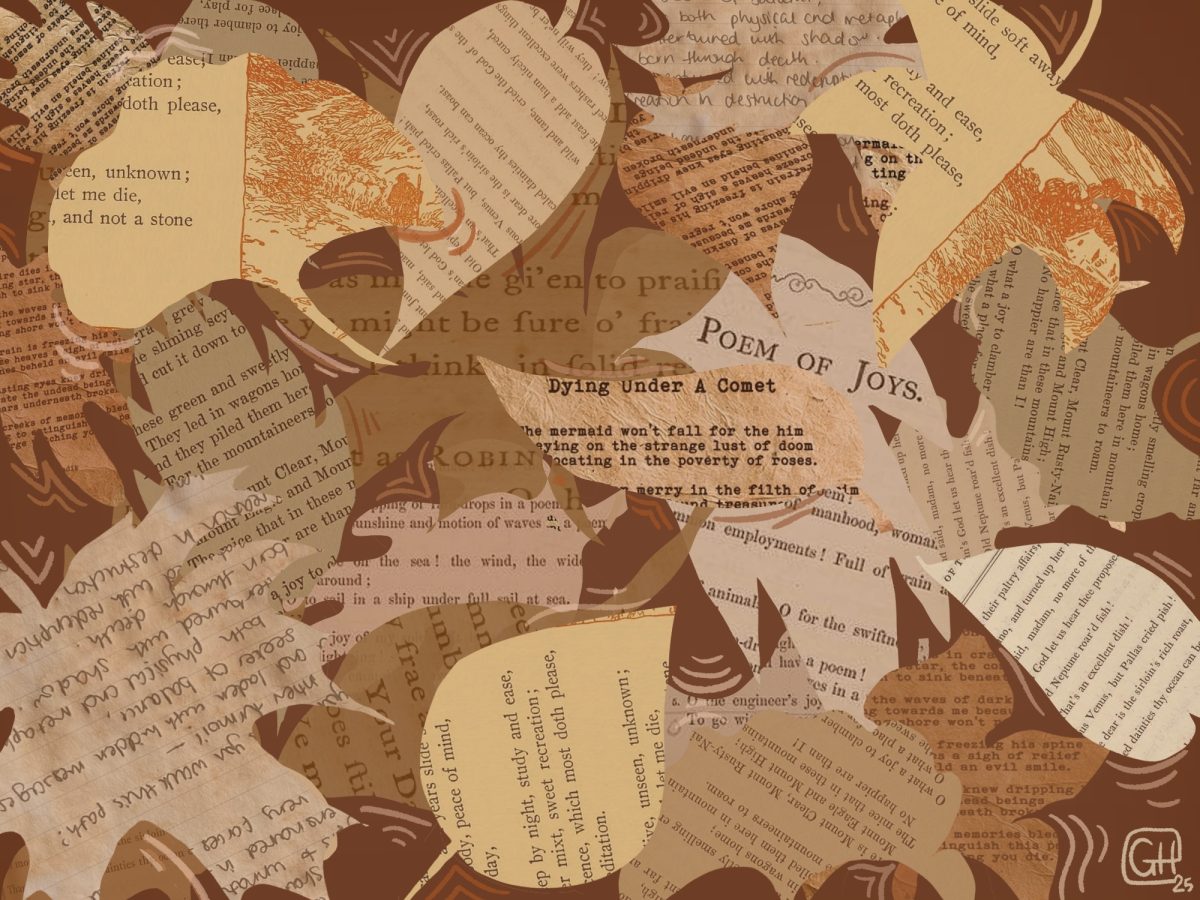Fans and critics alike have expressed mixed feelings about Taylor Swift’s much-awaited 12th studio album, “The Life of a Showgirl.” Some praise the album’s bold, innuendo-filled hits, while others miss the intimate storytelling of earlier eras.
But amid the reviews and rankings, an uglier conversation has bubbled up online, and it’s one that says more about us as fans than about the music itself.
Do you enjoy having random people dictate the decisions you make in your personal life? Would you find it appropriate if they felt entitled to comment on your relationships when they’re in no place to do so?
Now imagine millions of strangers on the internet debating who you should date or whether your partner is a “worthy muse.” That’s the reality Taylor Swift lives with every album cycle.
Swifties are among the most curious fan communities in the world — and Swift knows it.
She keeps us on our toes by leaving her Easter egg-fingerprints all over her art. In her debut album, she capitalized the lyrics in her songs that would reveal a secret message upon decoding. Today, she drops clues everywhere — in music videos, Instagram posts and interviews.
The most exciting example for me was the “1989 (Taylor’s Version)” vault puzzles, an interactive online game where fans collectively unlocked the names of unreleased songs. Swifties call themselves “detectives” for a reason: We excitedly follow the breadcrumbs to the end of the trail.
Sometimes that curiosity turns into chaos that we affectionately call “clowning.” We predict tour dates, album announcements or secret collaborators based on the tiniest hints — often hilariously wrong. But it’s mostly harmless fun that builds community.
Another remarkable trait of Swifties is our loyalty. When Taylor announced she would re-record her first six albums after the sale of her master recordings to Shamrock Capital, she asked fans to stream the new “Taylor’s Version” releases. To keep the excitement going, she also released “vault tracks,” which are songs she wrote but didn’t put on the original album.
We showed up. We boosted the songs to the top of the charts, proving that fan power can rewrite an artist’s narrative.
Swifties also have numerous traditions, like repeatedly streaming “august” during the first week of August or making friendship bracelets for our loved ones. These rituals are rooted in the love of keeping Swiftie culture alive.
But with this devotion comes a darker side: a sense of entitlement.
With the release of “The Life of a Showgirl,” I’ve seen comment sections flooded with remarks about Swift’s fiancé and NFL star Travis Kelce not being a good enough muse. Some fans make further insulting comments about Kelce, demeaning his intellect and personality. Some fans even post memes demanding “Bring back Joe,” because they prefer the songs she wrote about her ex, Joe Alwyn, over the songs she’s written about Travis.
This isn’t a healthy critique of Swift’s music — it’s parasocial policing of her private life.
Being a fan doesn’t mean you must love every track she releases. Disliking the lyrics or melody of a song is perfectly valid — people have different preferences. But critiquing the music is not the same as criticizing the person who inspired it. Unkind comments are especially uncalled for.

If you truly love Taylor Swift, shouldn’t her happiness matter more than your nostalgia for her heartbreak ballads? It’s okay if this album isn’t your favorite, but lucky for you, she’s got 11 others for you to stream.
Most importantly, reducing her life’s artwork to a conversation about her romantic interests — past and present — undermines who she is.
Swift is an admirable artist. For example, in her track “You’re Losing Me,” she incorporates the sound of her heartbeat into the production. How many pop stars do that? At just 19 years old, Taylor wrote every track on the album “Speak Now” by herself.
She’s also the first artist in history to win the Grammy for Album of the Year four times. On top of that, she meticulously plants Easter eggs years in advance — a level of planning revealing not just creativity but strategy.
Yet, headlines often focus on which ex-boyfriend inspired which lyric. People still joke that she only writes breakup songs, ignoring projects like “folklore,” an entire album built from a fictionalized world, “Marjorie,” a tribute to her grandmother, or empowerment anthems like “Shake It Off” and “The Man.” Reducing her life’s work to gossip about her muses undermines her growth as an artist.
As fans, we have the right to our opinions about Taylor Swift’s art, but we don’t have the right to dictate her personal life.
Passionate fandoms build community, but parasocial policing builds resentment.
If we claim to love Taylor Swift, we owe it to her to critique the music, celebrate the creativity and leave the rest to her.

























































































































